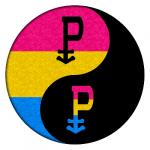Love to me is very complex and is something I know that at this point in my life I am not stable enough emotionally to have a relationship with a woman. How can I care for and provide for a woman if I can't even take care of myself? That and the main reason I ended my relationship with my girlfriend 2.5 years ago was because I was getting angry at her for petty reasons and verbally abused her a lot. I kind of wanted to "protect her from myself" if that makes any sense.
The problem is that even 2.5 years later now that we're just friends, I'm still very protective of her. Not to the point she can't be within 20 feet of guys, but to the point if I saw her getting attacked by a guy or abused by a future boyfriend I would gladly risk going to jail and/or getting my ass kicked to protect her. It's really weird and I don't understand it to this day. I mean we haven't dated in so long, yet I still look after her and am very quick to protect her. Though I will say that I'm more mature about it than when I was a teen. Back then, nobody, not even the adults in high school, said anything bad to my ex without me getting offended and telling them "You don't talk to my girlfriend like that!"
Again, I was never jealous or anything of my ex while dating her. But even now, when I'm driving her in my car, I am more cautious about her safety than my own. I make sure nobody does her any harm, physical or verbal. Am I weird for still feeling such a strong level of devotion towards someone who is now just my friend? If it makes any difference, I dated her over 4.5 years and we were each others' first significant other.










